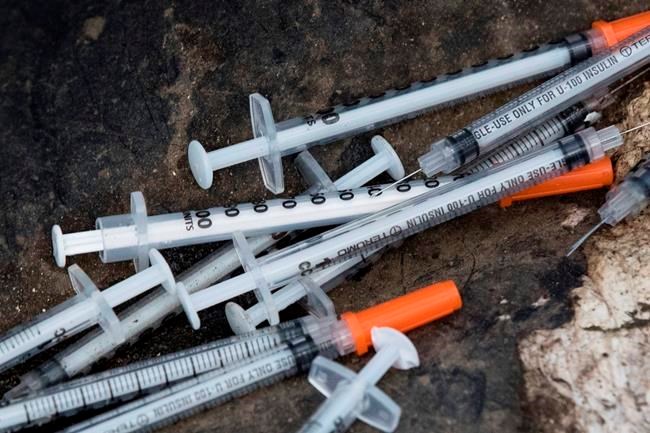Compassion clubs — like those that provided access to cannabis when it was prohibited — should be established to sell safe and regulated heroin to reduce overdose deaths caused by illicit fentanyl, the B.C. Centre for Substance Use said in a report Thursday.
Such heroin compassion clubs could provide people with addictions access to safe, pharmaceutical-grade opioids that are not tainted with deadly fentanyl, the addictions research centre said in the report, titled Heroin Compassion Clubs: A Co-operative Model to Reduce Opioid Overdose Deaths and Disrupt Organized Crime’s Role in Fentanyl, Money Laundering and Housing Unaffordability.
This proposal could also combat organized crime and money-laundering connected to the illegal sale of fentanyl in B.C., the report said. It would limit access to youth and other vulnerable people.
“In a public health emergency, urgency is required,” the report said. “It is proposed that this model be rapidly implemented and rigorously evaluated to understand how this model for regulation and control of the heroin market might reduce fentanyl overdose deaths while undermining organized crime profits and improving public health and safety in British Columbia.”
Just as compassion clubs and medication buyers’ clubs emerged during the AIDS crisis to provide medical cannabis and antiretroviral medicines, closely regulated heroin retail sales would allow opioid users to buy small amounts of heroin for personal consumption. Buyers would have to undergo eligibility screening by a doctor, which would include an informed-consent process that would link users to addiction treatment. They would also have to complete overdose-prevention and naloxone training.
The compassion clubs would sell only to members, and the drugs would be legally obtained from pharmaceutical manufacturers, securely stored in much the same way as prescription drugs.
Revenue from the heroin compassion clubs could be directed to drug treatment and recovery centres.
“The very fabric of B.C.’s society is fraying due to the combined challenges of organized crime, fentanyl poisonings and money-laundering in the province’s housing market and other sectors,” Evan Wood, the centre’s executive director, said in a statement. “As an addiction medicine physician and someone who has spent my career studying solutions to the challenges of addiction, I believe the only path forward for better preventing and treating opioid addiction is to wage economic war on organized crime and to regulate and control the heroin market.”
According to the B.C. Coroners Service, 1,489 people in B.C. died of illicit-drug overdoses last year, about the same number of deaths seen in 2017. That means an average of four people a day die of illicit-drug overdoses, more than suicides, homicides and vehicle deaths combined.
Fentanyl was detected in 86 per cent of deaths in 2018. No overdoses occurred at supervised-consumption sites or overdose-prevention sites.
Provincial health officer Dr. Bonnie Henry said the report’s proposal is an innovative solution that could provide low-barrier access to safer opioids to prevent people dying from a toxic street drug supply.
“I do think we need to support moving ahead with a project like this,” Henry said in an interview.
The report was written by a group of experts, including public-health researchers, addiction-medicine specialists and people who have been through substance use and recovery.
B.C. Mental Health and Addictions Minister Judy Darcy said she has not had a chance to read the report in depth, but said the province has had broad conversations with the federal government about drug decriminalization.
“That’s not a conversation they seem prepared to have at this time,” Darcy said. “For us in British Columbia, we’ve been pushing the envelope in order to have safe prescription alternatives available for people.”
The ministry is also working with police forces so that instead of criminalizing people with additions, police officers are connecting them to the health-care system and addictions treatment, Darcy said.
“Ultimately, the decision will be with the federal government, but we are escalating our response every single day, every single week, every single month.”



